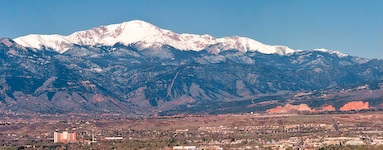Submitted by FCS7orgAdmin on
The Limits to Religious Freedom
By Ken Burrows
The novel coronavirus pandemic has told us a lot about the origins of disease agents, infection risks, society’s response to an outbreak, and more. Less prominent in the headlines has been a separate but pivotal COVID-19 risk issue: the danger of allowing “religious freedom” claims to pose virus-related harm to others.
The cases of pastors Tony Spell in Louisiana and Rodney Howard-Browne in Florida brought this risk into sharp relief. In their states with above-average coronavirus infection rates and in which social distancing orders had been issued, these pastors continued to hold church services for large gatherings, with Spell saying “the Lord told us to.” When legally sanctioned for doing so, they argued their religious freedom was under attack.
Somewhat similarly in the Colorado Springs commercial sphere, Hobby Lobby stores initially remained open even though it was a “non-essential” business under the governor’s stay-at-home order. Company CEO David Green said he defied the order based on a message his wife got from God. That implies he was exercising a “corporate religious freedom,” something Green has claimed a right to in the past.
Meanwhile, some states that instituted bans on group gatherings exempted houses of worship from penalty for violating the bans. For example, Michigan’s order dictated suspending “activities that are not necessary to sustain or protect life” and imposed penalties for failing to abide. But that same order went on to declare: “A place of religious worship, when used for religious worship, is not subject to penalty.” This exemption opened the door to large gatherings for worship, despite the obvious risks.
Fortunately many if not most religious organizations in the U.S. readily followed orders or recommendations to temporarily suspend the physical gathering of congregations in the interest of public health. They designed alternative avenues (live streaming, podcasts, etc.) for worship and other faith activities. They did so because protecting people’s lives rightly took precedence. By contrast, pastors like Spell and Howard-Browne were willing to risk spreading COVID-19 infections among their congregants, and on to all their contacts, justifying it as their “religious freedom” right. While Green kept his Hobby stores open, he was running same risk for employees and customers.
It’s worth noting that select court cases have ruled against giving special exemptions to churches in matters of public law and policy if such exemptions override a compelling state interest (such as, these days, preserving public health) and if they impose unjustified burdens on others (likelihood of infection, sickness, death). But this is the kind of exemptions some have claimed under the “religious freedom” banner in defiance of steps being taken to slow the spread of a uniquely contagious and deadly disease.
To be clear, religious freedom is an appropriately cherished right. It deserves protection. But all rights come with responsibilities and reasonable limits. COVID-19 reminds us, in a dire and dramatic way, that such limits apply to religious freedom too. Today’s virus pandemic has revealed how much harm “religious freedom” claims can cause if they’re deferred to always and unconditionally, without regard for consequences on people’s lives.
John Witherspoon, the only active clergyman to sign the Declaration of Independence, said it plainly. He held that exercising people’s rights, such as religious freedom, can be limited “so that they may not be injurious to one another [and] the public good may be promoted.”
